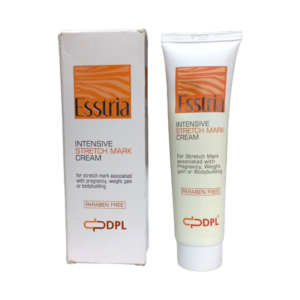WHITE SOFT PARAFFIN + POLYCARBOPHIL + LIGHT LIQUID PARAFFIN
White Soft Paraffin: Drug: White Soft Paraffin
Use: White Soft Paraffin is a topical emollient commonly used to moisturize and protect dry, chapped, or sensitive skin. It forms a protective barrier on the skin’s surface, which helps to retain moisture and prevent further dehydration. It is often used to treat conditions such as eczema, psoriasis, and dermatitis.
Mechanism of Action: White Soft Paraffin works by effectively reducing water loss from the skin and preventing irritants from coming into direct contact with the skin. It helps to restore the skin’s natural moisture and create a barrier against external factors that may cause dryness or irritation. This drug acts as a surface lubricant, providing symptomatic relief and promoting skin healing.
Dose: White Soft Paraffin is applied topically to the affected areas of the skin as required. The amount used will depend on the severity of the condition and the size of the affected area. It is available in various forms such as ointments, creams, or lotions. Follow the instructions provided by your healthcare professional or as stated on the packaging.
Side Effects: White Soft Paraffin is generally safe to use and usually does not cause side effects. However, in rare cases, some individuals may experience local skin reactions such as redness, itching, or a rash. If any irritation occurs, discontinue use and consult a healthcare professional. It is important to note that this drug should not be used if you are allergic to any of its ingredients. Always read the product label and consult your healthcare provider if you have any concerns or questions.
Polycarbophil: Polycarbophil is a medication that belongs to a class of drugs called bulk-forming laxatives. It is mainly used to treat constipation and promote regular bowel movements in individuals who have difficulty passing stools.
The mechanism of action of Polycarbophil involves absorbing water and swelling in the intestines, which helps to soften the stool and adds bulk. This stimulates the natural muscle contractions of the digestive tract, thereby facilitating the passage of feces through the bowels.
Polycarbophil is available in oral form and is typically taken with a glass of water. The dosage may vary depending on the individual’s age, medical condition, and response to treatment. It is important to follow the instructions provided by the healthcare professional or the medication package.
As with any medication, Polycarbophil may cause certain side effects. Common side effects may include bloating, stomach cramps, gas, or diarrhea. These side effects are usually mild and temporary. However, if these side effects persist or worsen, it is advisable to consult a healthcare professional.
It is important to note that Polycarbophil should not be used by individuals with a known allergy or hypersensitivity to the drug. It is also not recommended for individuals with a bowel obstruction, swallowing difficulties, or any other condition that may worsen with increased fiber intake.
Additionally, Polycarbophil should not be used for an extended period without consulting a healthcare professional. If the symptoms of constipation persist or worsen after using Polycarbophil, it is important to seek medical advice.
Overall, Polycarbophil is an effective medication for managing constipation by promoting regular bowel movements. It is crucial to use the medication as directed and discuss any concerns or potential interactions with a healthcare professional.
Light Liquid Paraffin: Drug: Light Liquid Paraffin
Use:
Light Liquid Paraffin, also known as mineral oil, is a highly refined and purified liquid petroleum product. It is commonly used as a lubricant laxative to relieve constipation and soften stools. It is typically prescribed for short-term use to prevent straining during bowel movements and to provide relief from occasional constipation.
Mechanism of Action:
Light Liquid Paraffin works by lubricating the intestines and stool, helping to ease the passage of fecal matter through the digestive system. It forms a slippery film on the walls of the intestines, reducing friction and allowing for smoother bowel movements. This lubricating action aids in the softening and passage of stools, relieving constipation.
Dose:
The recommended dose of Light Liquid Paraffin may vary depending on age, weight, and the severity of constipation. The drug is usually taken orally and should be carefully measured using a suitable measuring device. It is essential to follow the dosage instructions provided by the healthcare professional or as mentioned on the product label.
Side Effects:
Like any medication, Light Liquid Paraffin may cause some side effects, although not everyone experiences them. Common side effects may include:
1. Diarrhea: Light Liquid Paraffin can occasionally result in loose stools or diarrheal episodes.
2. Abdominal discomfort: Some individuals may experience mild abdominal pain or discomfort.
3. Nausea or vomiting: In rare cases, Light Liquid Paraffin may cause nausea or vomiting.
It is important to note that prolonged and excessive use of Light Liquid Paraffin can lead to potential risks, such as vitamin deficiencies (due to decreased absorption) and dependence on laxatives. Long-term use should be avoided without medical supervision.
If any side effects are experienced or if constipation persists or worsens after using Light Liquid Paraffin, it is advisable to consult a healthcare professional for further evaluation and guidance.

